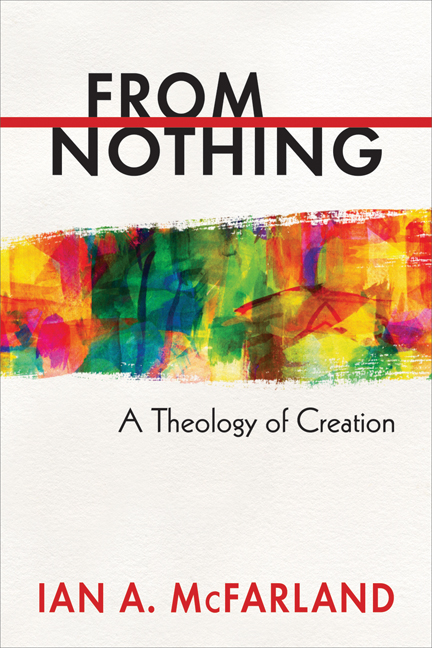Ian McFarland: From Nothing
 Ian McFarland, From Nothing: A Theology of Creation (Louisville: Westminster John Knox Press, 2014), 212 pages.
Ian McFarland, From Nothing: A Theology of Creation (Louisville: Westminster John Knox Press, 2014), 212 pages.
In the recent work, From Nothing: A Theology of Creation, Ian McFarland aims to defend and develop the classic doctrine of creation ex nihilo by arguing that the doctrine of creation from nothing is best understood in a Trinitarian framework. The author asserts that God alone is uncreated and that all creatures outside of Him find their existence in Him. Further, through Jesus, the incarnate Logos, all of creation has been drawn into the life and love of the Trinity.
This work is primarily ordered around two main parts, “Exitus” (chapters 2-4) and “Reditus” (chapters 5-7), but also includes a considerable introductory chapter (chapter 1) and a brief conclusion (chapter 8). The argument he asserts in support of his position begins in his first chapter through surveying exegetical, historical, and contemporary issues relevant to the Christian doctrine of creation. McFarland explains that the doctrine of creation from nothing is essential to agree with Scripture’s assertion that there is one God who is the lone source of all things. Further, the author concludes that examining what God does is inseparable from knowing who God, which has implications for the doctrine of creation. For this reason, Christians cannot talk about creation apart from Christology. Thus, for McFarland, Christology is central for a doctrine of creation as it guarantees that God’s power is not understand as totalitarianism or whim (p. 23).
McFarland then turns to the first part of the book, focusing on the claim that the world is embedded in the life of God. Taking from the statement, “God creates from nothing”, in part 1 McFarland constructs his first three chapters exploring “God”, “Creates”, and “Nothing”. In chapter 2, God is characterized as transcendent, living, productive, and present. These attributes all function within the understanding that God is ultimately defined by the love shared relationally between Father, Son and Holy Spirit. Therefore, this framework makes it fitting that God should create, “since creation is simply the act by which God, who is already intrinsically living, productive, and present, determines also to be living, productive, and present to that which is not divine” (p. 57). This leads to the third chapter where the author affirms on the one hand that creatures reflect the Logos, but are on the other hand entirely distinct from it. McFarland argues for the seemingly incongruous notion that finite creatures are utterly dependent on and yet not less thoroughly discontinuous with God by stating that the unity of creation can only be established in the Logos, thus God not only created the world, but created it from nothing. Chapter 4 then builds on this idea by way of the doctrine of the incarnation. For McFarland, the incarnation is the “definitive exemplification” (107) of the principle that nothing limits God, and is the key to a Christian understanding of creation from nothing. Through the incarnation, God has chosen to include creation within God’s own life and through extension, the works of redemption and glorification.


